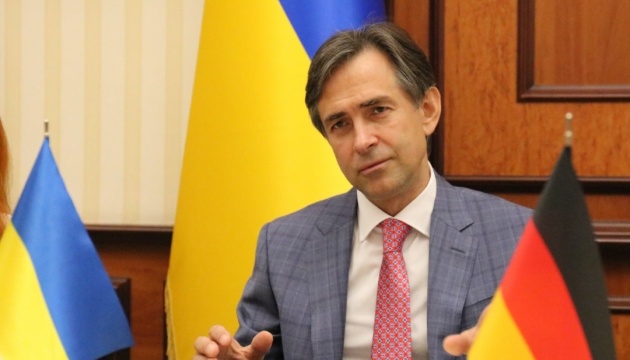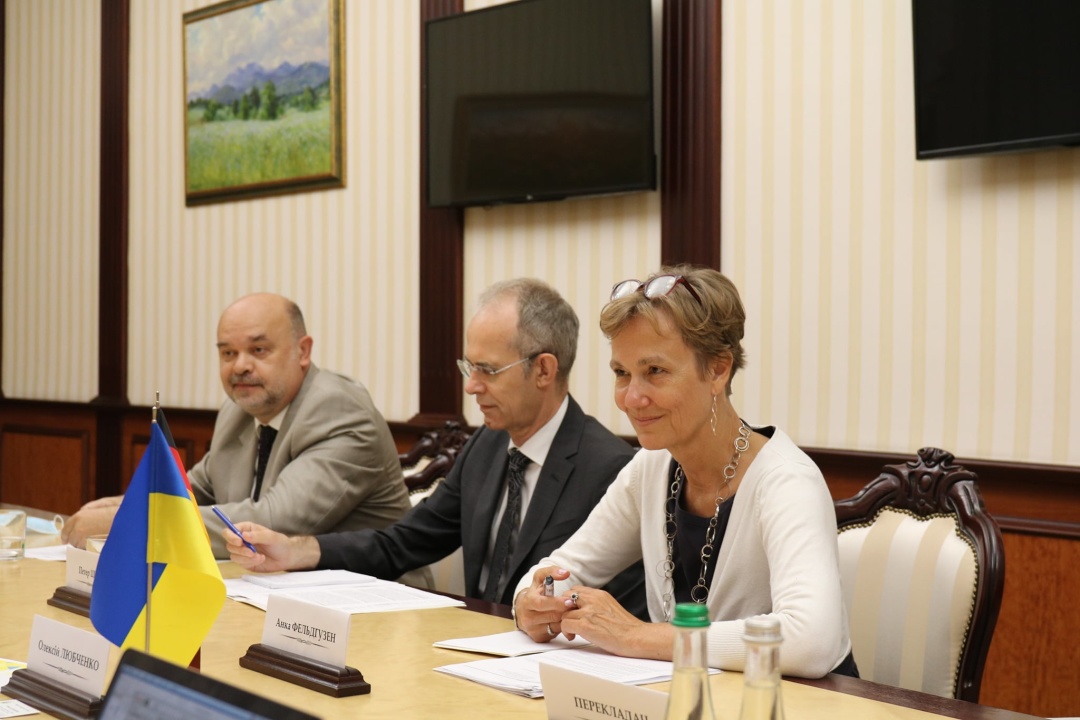
Liubchenko invites German business to invest in Ukraine
According to the report, First Deputy Prime Minister, Minister of Economy Oleksii Liubchenko said this at a meeting with Ambassador of Germany to Ukraine Anka Feldhusen.
"Germany is a strategic partner for Ukraine, which is why my task as First Deputy Prime Minister and Minister of Economy is to find synergies and points of intersection of our countries in the economy. [...] I believe that the following clusters will be of interest to German business: technological development, which includes technological production, transport production, modern technologies, investments in health care, production of medical equipment and medicines," Liubchenko said.

Feldhusen, in turn, noted that recent events with the spread of the pandemic in the world have reoriented the policy of large German businesses, with an urgent requirement today being the localization of large pharmaceutical companies closer to Germany.
"Ukraine, given its successful location, can become such a place," she said.
Liubchenko invited German businesses to invest in Ukraine.
"We have approved the law on state support for investment projects with significant investments in Ukraine, which creates acceptable conditions for doing business for investors who come to us with investments of more than 20 million euros and create new jobs. We are already completing the legal work with bylaws to make this law work," he said.
Liubchenko also briefed his foreign colleagues on the changes planned by the Ukrainian government in the field of human capital management.
"We will launch a new human capital management strategy. Our goal is to create mechanisms so that graduates of higher educational institutions could stay to work at home, take on challenges and build the future of Ukraine," Liubchenko said.

In addition, current issues of cooperation between the two countries were discussed during the meeting, in particular, the prospects for signing a memorandum of understanding on the protection of the rights of Ukrainian citizens legally working in Germany.
Photo credit: Ministry of Economy




